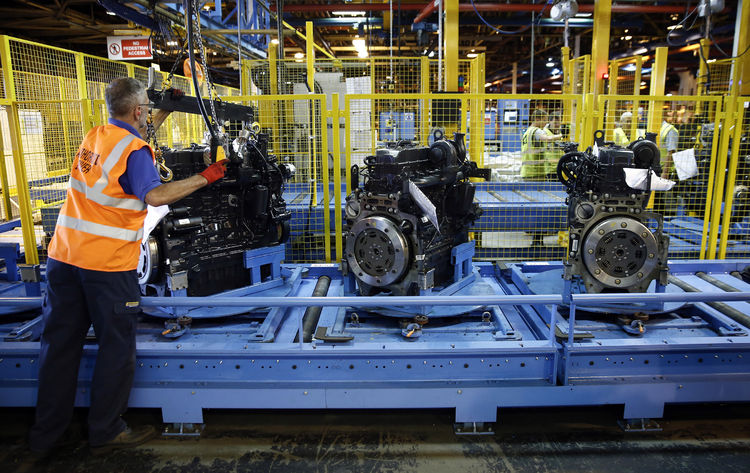Markets
U.K. Manufacturing Growth Surges to Fastest in Three Years

- U.K. Manufacturing Growth Surges to Fastest in Three Years
U.K. manufacturing unexpectedly grew at the fastest pace in three years in April as the domestic market strengthened and the pound’s depreciation boosted exports.
A measure of factory conditions rose to 57.3 from 54.2 in March, according to IHS Markit’s Purchasing Managers’ Index. That’s far better than the 54 forecast by economists in a survey and above the 50 level dividing expansion from contraction. Growth in new orders and exports also gathered pace.
The pound rose immediately after the survey was released, before paring its advance, and was little changed at $1.2894 as of 10:40 a.m. London time.
Markit’s report reinforces the view that exporters are in what Bank of England Deputy Governor Ben Broadbent has called a “sweet spot,” since the currency’s decline has increased competitiveness, while the U.K. still enjoys free trade with the EU’s single market. But while the better factory numbers are a good start to the second quarter, sterling is also fueling inflation, and the consumer side of the economy is weakening.
The drop in the pound “helped manufacturers take full advantage of the recent signs of revival in the global economy, and especially the eurozone,” said Rob Dobson, senior economist at IHS Markit. “The big question is whether this growth spurt can be maintained.”
Much of the economy’s performance will depend on the services sector. It posted its weakest performance in two years in the first quarter, when the pace of overall economic growth slowed by more than half. A gauge of services from Markit due Thursday is forecast to decline to 54.5 in April from 55 in March.
The factory survey also highlighted the mixed effects of the pound’s decline since the vote to leave the EU. Factory price pressures remained elevated last month, with input costs above their long-run average. As that feeds through to inflation, that means workers are facing a drop in real incomes this year, undermining their spending power.
Consumers are also facing double uncertainty from Brexit negotiations and a general election after U.K. Prime Minister Theresa May called an early election for June to try to strengthen her hand in the talks with the EU.
George Buckley, an economist at Nomura in London, said the improvement in the latest factory PMI was a “remarkable achievement in the face of Brexit uncertainty,” though he noted that sharp moves in the measure have typically reversed the following month.
“Clearly the U.K. manufacturing sector is deriving some benefit from the export side,” he said. “While we continue to think that weaker consumption and investment spending will take its toll on economic growth as the year develops, this morning’s PMI points to ‘stronger for longer’ than we thought.”